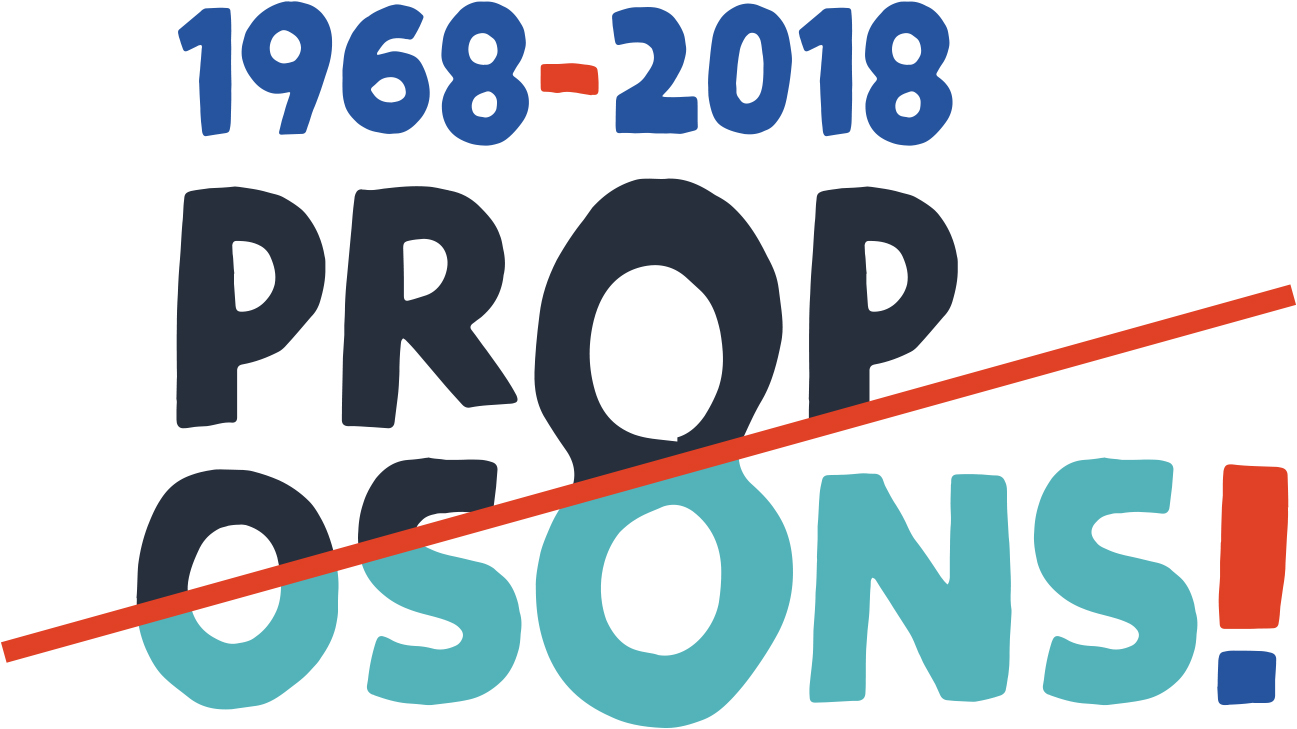Civilisations du Commonwealth
Responsables :
Martine Piquet (Paris Dauphine)
Gilles TEULIÉ (Aix-Marseille)
Atelier I
Jeudi 7 juin, 15h30-18h30
Salle V412
Président de Séance : Gilles Teulié
15h30
Accueil dans l’atelier
15h40
Manel Salem
Université de Poitiers
Conservatism seen from within during The Thatcher Era: Resistance to Change and/ or Revolutionary politics
British Conservatism was subject to many interpretations and a wide plethora of definitions. Some of these definitions were based, first, on the dynamics of the Conservative Party itself, which was full of contradictions and, second, the different challenges it faced over decades. From Edmund Burke to Margaret Thatcher, many changes had taken place. However, despite the Conservatives’ belief in the organic nature of society and so the need for change, continuity seemed to be the most important characteristics of the Thatcher governments from 1979 to 1990. The analysis of Conservatism from within the Conservative Party, mainly through the analysis of a multitude of archival material particularly available in the Churchill Archives in Cambridge, demonstrates the continuity of Conservatives’ politics despite change since for Conservatives, there should be change in order to conserve and persist.
16h
Sam Coombes
Université d’Edimbourg
Discours postcoloniaux du 21e siècle : contestataires ou consensuels ?
Où se situe le discours critique dit « postcolonial » aujourd’hui au plan politique ? S’agit-il encore d’un discours qui, dans certaines de ces manifestations, peut être considéré comme contestataire ou est-ce que la grande époque de l’anti-colonialisme et du postcolonialisme contestataires est révolue, laissant la place à un discours consensuel qui ne met en cause ni les inégalités entre les communautés éthniques ni l’idéologie du marché dominante ? Pour répondre à cette question, il faut remonter aux années 1980 au moins, époque charnière dans l’évolution du capitalisme occidental et moment clé dans l’évolution de la théorie critique dans le monde anglosaxon. Quel peut donc être le rôle politique du discours postcolonial aujourd’hui ? Dans cette communication nous tenterons d’examiner différentes hypothèses, nous focalisant en particulier sur les études diasporiques que nous présenterons comme le domaine peut-être le plus apte à renouveler la dimension politique du discours critique « postcolonial ».
16h20
Hélène Schwitzer-Borgiallo
Université Paris 8 Vincennes Saint-Denis
Talk about a revolution! Post-apartheid disenchantment in Yaël Farber’s Mies Julie
In her 2012 play Mies Julie, South African playwright Yaël Farber adapted August Strindberg’s Miss Julie in an effort to reflect on the actual state of South Africa’s national reconstruction process. Yaël Farber’s version illustrates the persisting racial, socio-economic and gender tensions which plague today’s South Africa. Set in a farmhouse kitchen on the night of Freedom Day 2012, the play pits Julie, the daughter of a rich Afrikaner landowner, against John, a young Xhosa man who grew up on the farm as the son of a domestic worker and is now employed by Julie’s father. Almost twenty years after the end of apartheid, their mutual attraction should be anything but problematic. However, if both John and Julie claim to be free from all social and mental constraints, they are actually trapped in an unresolved past and seem unable to reinvent their own narratives.
16h40
Cécile Perrot
Université Paris-Descartes
Jeunesse sud-africaine, jeunesse révolutionnaire ?
17h
Pause
17h20
Asma Ben Hassine
Université Paris Est-Creteil
The Indian Revolt of 1857
Revolutions undergo a deep process of evolution, which unveils a hidden, blurred or explicit rejection of a particular corruption, a given political system or a powerful empire. The British Empire in India was marked by a conspicuous suzerainty of British power over natives of India who suffered from personal, social, cultural and religious grievances. The outbreak of the Indian revolt in 1857 or the so called “Sepoy” Mutiny had a popular dimension too and was not merely a military rebellion. This unprecedented revolt deeply shook British India, questioned the very legitimacy of British presence in India, and widely disrupted the trade interests of Great Britain. It culminated in the abolition of the East India Company and the end of indirect rule. A new system of colonial administration brought about Direct rule, the “Raj”, in which both the Crown and Parliament took control of Indian affairs.
17h40
Bhawana Jain
Université Paris 1 – Panthéon-Sorbonne
Decoding Partition of India using intermediality in an era of digital humanities
Partition of India (1947) is still remembered as a horrendous past event stained by violence, bloodshed and mass displacement. Over the years, the study of intersections of different medias in the production of its meaning has become more and more complex and has acquired many layers such as by the latest creation of the website www.1947partitionarchive.org. This paper studies how this website’s engagement with the Partition’s ‘unfinished business’ guides us toward new degrees of complexity as well as understanding by transgressing traditional boundaries between disciplines as well as genres. In doing so, the paper also highlights digital humanities as a tool of explosive potential that effectively explores interrelationship between history, memory, trauma narratives and brings about dynamic changes in the role of spectators as well as in their perception of the Partition of India.
18h
Delphine David
Université Paris-Diderot
Change Australia Day to May 8, Maaaaate: Past and Present Analysis of a Controversial National Day as Australia ‘celebrates’ the 230th Anniversary of the First Fleet’s Arrival
On the 26th of January, Australians celebrate Australia Day. For many Indigenous and a growing number of non-Indigenous Australians, this date is synonymous with the beginning of colonisation and the violence and development of inequalities which ensued. The controversial nature of Australia’s national day has been particularly visible during the celebrations of anniversaries. In 1988, as Australia embraced multiculturalism, the official slogan, ‘Living Together’ sought to celebrate the unity of Australians rather than to recognise Indigenous people and their history. In 2018, Australia celebrated the 230th anniversary of the first settlement amid a growing debate about changing the date of Australia Day. While the government continues to oppose this change, this proposal is generating more and more discussion within the general public. This presentation will explore the significance of this debate within the reconciliation process between Indigenous and non-Indigenous Australians and the evolution of the place of Indigenous people within the national imaginary.
18h20
Matthew Graves
Aix-Marseille Université
Elizabeth Rechniewski
University of Sydney
A selective memory? Revisiting the Boer War in Australian commemorative politics
Atelier II
Vendredi 8, 9h-10h30
Salle V412
Présidente de Séance : Martine Piquet
9h
Grégory Albisson
Université Grenoble-Alpes
Brown Power in Aotearoa, New Zealand: a new departure in a new world?
While the 1970s are remembered in the collective mind of New Zealand as the years of the Māori Renaissance, it was also the decade of the Polynesian Panthers Party (PPP), a pan-Polynesian organisation that was directly inspired from the American Black Panthers and that formally lasted from 1971 to the 1981 Springbok Tour protest, a massive anti-apartheid campaign in New Zealand. This paper aims at tracing the history of this group and its legacy. Despite an ideological filiation that has been acknowledged by the original Panthers in the United States, did the Polynesian Panthers develop features that are specific to their New Zealand context? Was the Panthers’ agenda revolutionary? Rather, it is safe to say that the organisation was reformist at heart insofar as promoting equality and cultural pride within the same paradigm seemed to be the PPP’s main objectives. A more thorough analysis of the Polynesian Panthers’ legacy in today’s Aotearoa will help provide a more accurate answer.
9h20
Sharon Baptiste
Université Paris 13
Le mouvement Black Power aux Caraïbes anglophones : Les conséquences et héritage(s) de la Révolution de février 1970 à Trinité-et-Tobago
Le mouvement Black Power à Trinité-et-Tobago débuta en février 1970 avec une manifestation organisée par des étudiants sur le campus de l’université à Port-of-Spain. En quelques jours, des universitaires, des syndicalistes dissidents, des groupes culturels et des chômeurs se sont joints aux étudiants pour créer le National Joint Action Committee (NJAC). Ce dernier dénonçait les inégalités sociales et économiques engendrées par le système politique en vigueur. Selon les leaders du NJAC, seul le rejet total de ce système néocolonial ainsi que de ses institutions et valeurs culturelles pouvaient assurer la libération totale des Trinidadiens et Tobagoniens. Deux mois de manifestations très suivies à travers le pays ont failli renverser le gouvernement, obligé de déclarer l’état d’urgence. Finalement, le NJAC échoua. L’objectif de cette communication est d’analyser les raisons de cet échec et ses conséquences sur d’autres groupes qui ont succédé au NJAC dans les années 1970 et au-delà.
9h40
Vanessa Castejon
Université Paris 13
Australie, représentation et identité : influence politique, sociale, historiographique du Black Power
Le Black Power aborigène (1968-1972) a précédé les changements importants dans l’histoire politique des relations Aborigènes/non-Aborigènes. Il a participé, indirectement, à la réécriture du passé, à une autre vision de l’Histoire aborigène/australienne depuis la colonisation. On note un regain d’intérêt à chaque fois que le gouvernement a voulu imposer sa vision de l’aboriginalité. Ainsi le Black Power a influencé d’autres mouvements contestataires aborigènes des années 1960 à nos jours et a œuvré à la création d’une identité « aborigène », malgré la diversité des identités autochtones en Australie. Aujourd’hui existe toujours un questionnement sur ce qu’est être autochtone et sur la place « dans » la société australienne. Seront évoqués également la façon il a été perçu en Australie et ailleurs, une nouvelle représentation des peuples autochtones d’Australie en a-t-elle découlé ? Comment le mouvement est-il perçu dans l’histoire du pays, le terme « révolution » est-il utilisé ?
10h
Deirdre Gilfedder
Université Paris-Dauphine
Brisbane: Birthplace of Punk
Australia’s Third Metropolis, Brisbane is rarely painted internationally as a cultural city, yet some of Australia’s most interesting writers and artists emerged in Post-War Brisbane in the wake of American command bases For many Australians, however, Brisbane’s cultural history is associated with the dialectic between the repressive government of national party leader Joh Bjelke Peterson, and the emergence of a lively, anarchistic punk rock scene in the late 1970s and early 80s. Brisbane is widely seen as having produced some of the best punk, indie and post-punk bands of Australia in a period where it was « arguably the most conservative city » in the country (Ian McFarlane). From the Saints, the Leftovers, the Riptides to anti-police bands, Brisbane bands mixed rhythm with politics in a very different way to similar scenes in London or the USA.
10h30
Pause
17h30-19h30
Salle V412
Table ronde : Mise en place d’un réseau d’études australiennes
Votre proposition (titre + résumé 300 mots max+ courte biographie) est à envoyer conjointement aux deux personnes suivantes avant le 10 janvier 2018, délai de rigueur:
Martine Piquet (Univ. Paris-Dauphine)
Gilles Teulié (Aix-Marseille Univ.)
Les communications peuvent être en français ou en anglais, la langue pour la publication dans la revue peer-reviewed Cultures of the Commonwealth est l’anglais.



